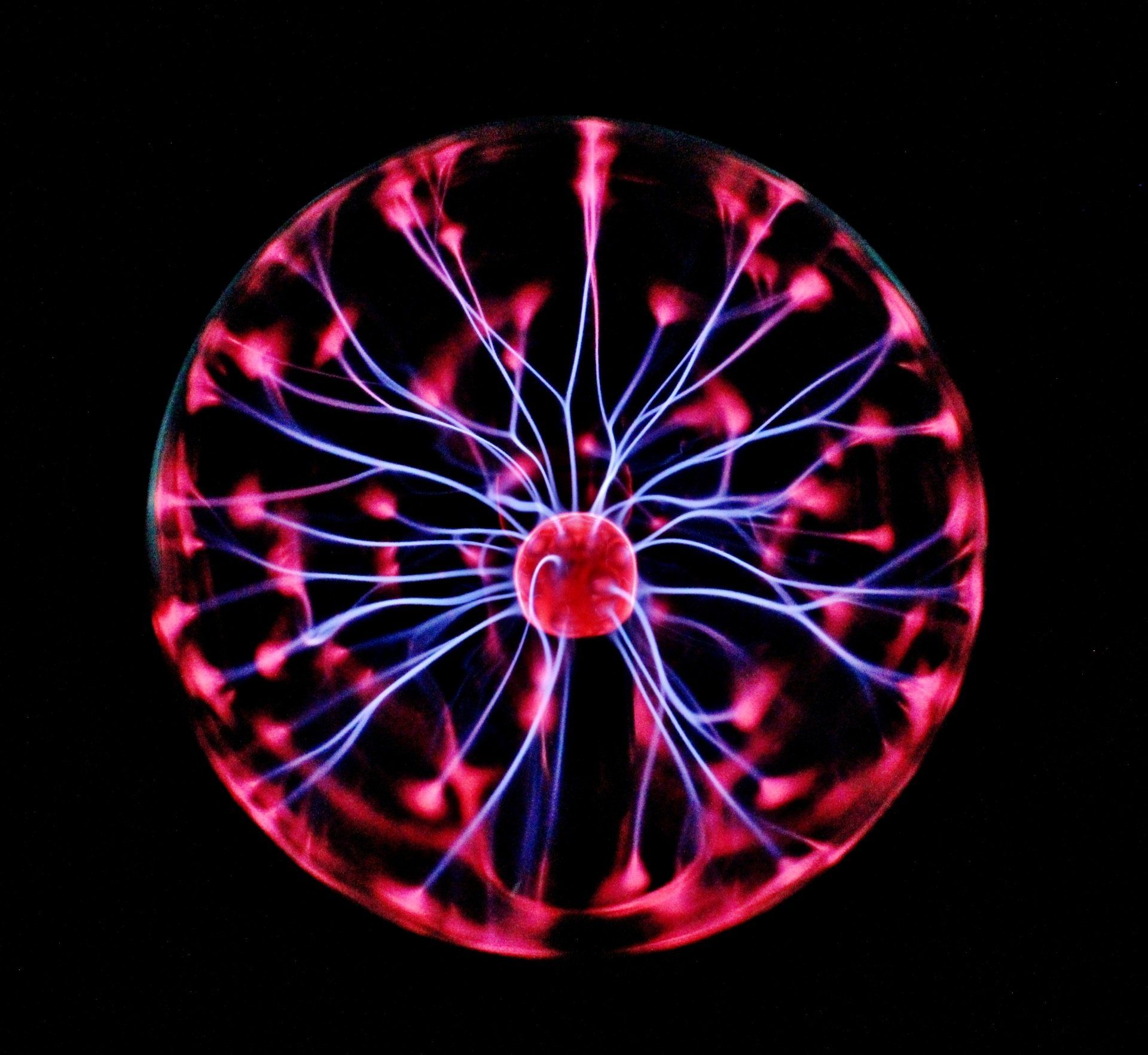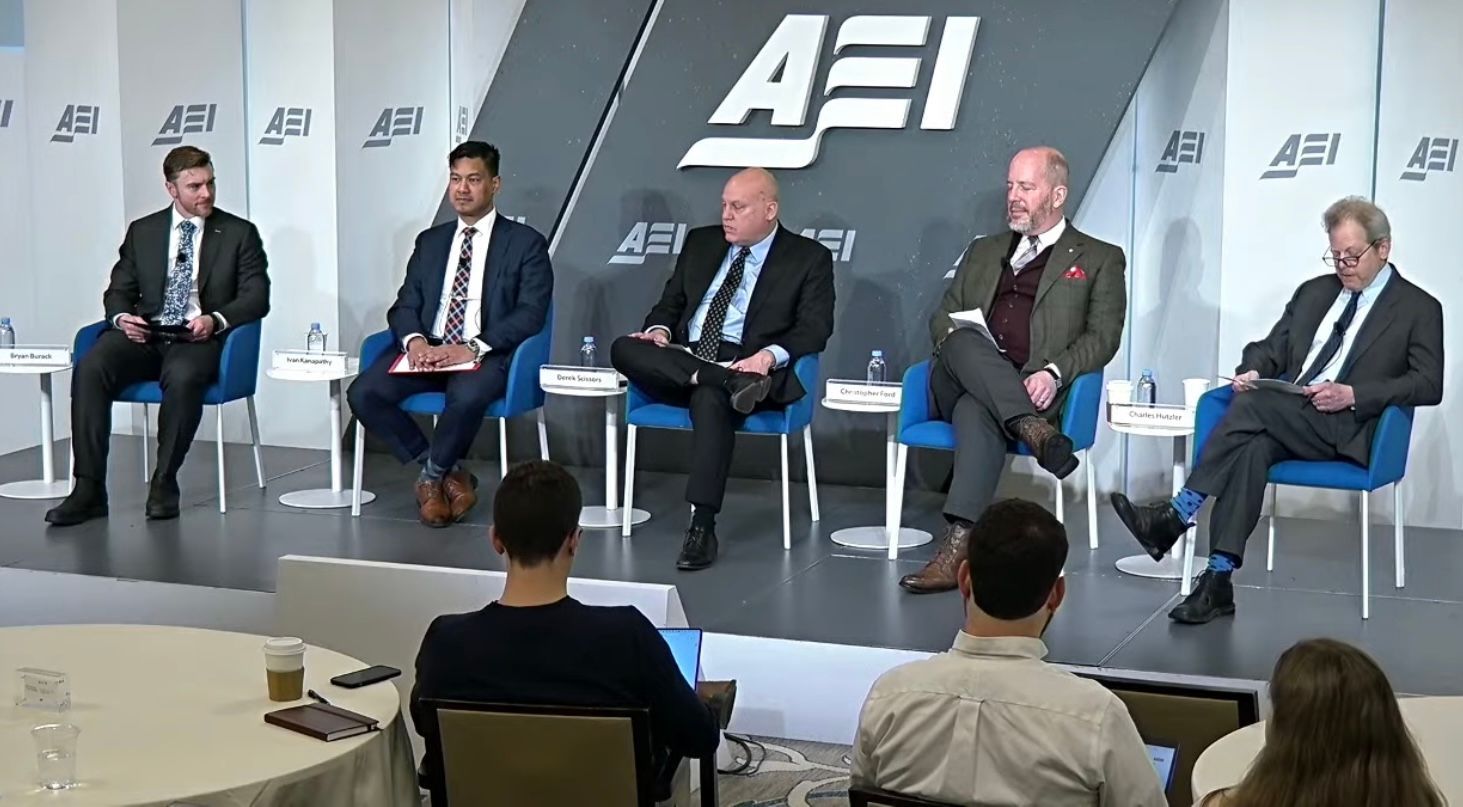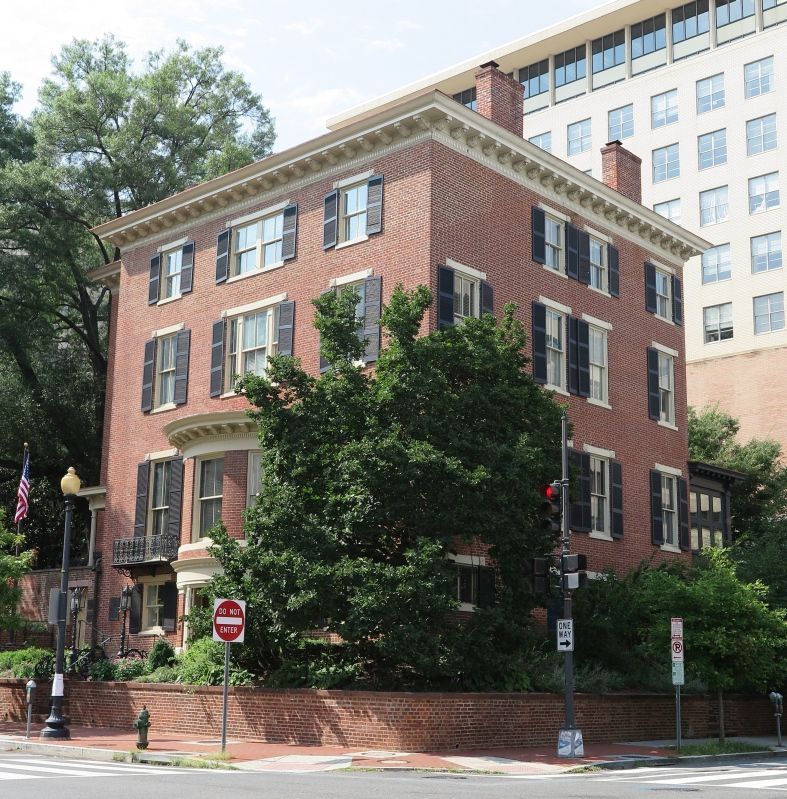The Hon. Christopher A. Ford
New Paradigms Forum -- International Security Policy Since 2009
A Work Plan for the 2010 Review Cycle: Coping with Challenges Facing the Nuclear Nonproliferation Treaty
Note:
The following remarks were delivered by Dr. Ford when serving as U.S. Special Representative for Nuclear Nonproliferation, as the U.S. Government's opening remarks to the 2007 Preparatory Committee Meeting of the Treaty on the Non-Proliferation of Nuclear Weapons, in Vienna, Austria, on April 30, 2007.
Thank you, Mr. Chairman.
As we begin a new review cycle for the Nuclear Nonproliferation Treaty (NPT), it should be clear to everyone that this is indeed a pivotal time for the Treaty. The Treaty confronts tremendous challenges, as well as remarkable opportunities, about which I would like to speak briefly before offering the United States' suggestions about how the States Party assembled here today can help the NPT better achieve its objectives.
I. Challenges and Opportunities
A. Nonproliferation Compliance
The most fundamental challenges facing the NPT regime today are related to noncompliance with its core of nonproliferation provisions. These challenges should require no elaboration, but it is worth emphasizing that this is the first time that NPT States Party have commenced a new review cycle since some of the worst of these problems first bloomed in the public eye. This is, then, the first time that we have an opportunity to define and refine measures and approaches to ensure a review cycle that is fully relevant to these circumstances.
- This is the first review cycle, for instance, to have begun after public revelation of Iran's two-decade-long clandestine nuclear program, and after its nuclear weapons ambitions have become clear to the international community.
- It is the first review cycle to have begun after the revelation of Libya's secret nuclear weapons program, and we applaud Libya's courageous decision to end it.
- It is the first NPT review cycle to begin since public revelations about the A.Q. Khan nuclear smuggling network that supplied enrichment technology and nuclear weapons-related designs to both Libya and Iran.
- And it is the first review cycle since North Korea announced its withdrawal from the Treaty, and since that country's subsequent nuclear detonation.
- Furthermore, this is also the first review cycle to have commenced after debates in NPT fora have come to focus upon what the International Atomic Energy Agency (IAEA) Director General has referred to as the "Achilles heel" of the regime -- the spread of technology giving more and more states the ability, if they choose to do so, to overcome the principal remaining technical hurdle to proliferation: producing fissile materials usable in nuclear weapons. President Bush focused many of his groundbreaking February 2004 remarks at our National Defense University upon this topic, and this review cycle thus begins with these issues fully before us.
Together, these developments and others present the NPT regime today with the most significant challenges it has ever faced: how to ensure the integrity and continued viability of the Treaty in the face of flagrant nonproliferation noncompliance.
We should not delude ourselves about how important it is that the Treaty, which has served its States Party well over the years, meet this challenge of nonproliferation noncompliance. Failure to ensure NPT compliance undermines the most important benefit the NPT brings: assurance against the proliferation of nuclear weapons. By undercutting these core nonproliferation assurances, nonproliferation noncompliance imperils the peace and security of all nations. Failure to deal with noncompliance will lead to a loss of faith in the Treaty, embolden would-be violators to traduce their obligations, and even tempt peaceful and law-abiding states -- in light of this -- to hedge their bets and consider pursuing nuclear weapons themselves. Make no mistake: a world with more nuclear weapons possessors and more availability of the capacity to make such weapons would be far more dangerous than the one in which we all live today.
Noncompliance with the Treaty's core of nonproliferation obligations also undermines efforts to bring about universal adherence to the NPT. If compliance with the Treaty's obligations were to be seen, in effect, as merely optional, there would be both little purpose in seeking to bring non-parties into the Treaty and little benefit of having them subject to its obligations if they did join. Nonproliferation compliance is thus critical to any meaningful effort to achieve universal adherence.
Nonproliferation noncompliance also undermines the foundation of trust and safety upon which the benefits of peaceful international nuclear cooperation are necessarily built. Without assurances that transfers of nuclear technology will occur within the framework of appropriate safeguards and as part of a system that helps ensure the employment of such technology for exclusively peaceful purposes, such transfers would become more difficult -- or even impossible -- and much of mankind would lose the benefits that such technology can bring. Nonproliferation compliance is thus the foundation upon which benefit-sharing necessarily rests, for technology-possessors cannot and should not share their knowledge and experience if doing so would not be safe, or would not be consistent with their nonproliferation obligations.
And finally, nonproliferation noncompliance undercuts the aspirations of the international community to nuclear and to more general disarmament, as expressed in the Preamble and Article VI of the NPT. If the emergence of new nuclear weapons possessors cannot be stopped, new regional or global nuclear arms races are likely to develop and/or become entrenched, and the risk of nuclear warfare could increase dramatically.
For all of these reasons, it is imperative that States Party focus during this review cycle upon how to develop and implement vigorous and sustained efforts to detect violations of the Treaty's nonproliferation obligations, return violators to compliance, and deter other future would-be violators from following such a path. If the Treaty's parties will not stand up for compliance with its most important provisions, how can the NPT regime survive? This is the most critical test that States Party face during this review cycle.
B. Promoting Peaceful Uses
But this review cycle may be a pivotal one not merely with regard to nonproliferation. Take, for instance, promoting the peaceful uses of nuclear energy. Here, the Treaty faces both challenges and opportunities. The NPT faces a challenge because the system of international cooperation in peaceful nuclear endeavors relies upon the observance of nonproliferation norms, including the Treaty's core of nonproliferation obligations. And the Treaty faces a challenge because of the dangerous tendency on some countries' part to twist and politicize discussions of the Treaty's Article IV in an effort to excuse and provide political cover for efforts -- including, currently, by Iran -- to develop the capability to produce fissile material for nuclear weapons.
But the Treaty also faces great opportunities in the area of peaceful uses, for nuclear energy has always had a Janus-faced aspect, offering humankind both great peril and extraordinary promise. Upon witnessing the first nuclear explosion, Robert Oppenheimer, the head of the team of scientists who built that first atomic bomb, recalled a line from the great Indian classic, the Bhagavad-Gita : "Now I am become Death, the destroyer of worlds." But Oppenheimer only quoted the first half of that sentence from the thirty-fourth stanza of the tenth chapter of the Gita. The second half of it translates roughly as: "and I am the origin of things that are yet to be."
As the full verse thus seems to presage, nuclear energy has indeed offered humankind terrible destructive power but also enormous creative power. And today, NPT States Party stand on the threshold of a new era in growing nuclear cooperation worldwide as the world increasingly seeks to meet its skyrocketing energy needs with nuclear power generation. Programs such as the United States' Global Nuclear Energy Partnership (GNEP) and the initiative to provide a robust and reliable mechanism for international nuclear fuel supply hold out the promise of expanding nuclear cooperation and technology-sharing, in proliferation-resistant ways, to the great benefit of all humanity.
C. Progress Toward Disarmament
Finally, this is an important time for the NPT with regard to disarmament issues, which I know are of great concern to many States Party here today. The Cold War is now long over, and dramatic progress in reducing the number of warheads and delivery systems has been possible on account of the changed strategic relationship between the two former superpower adversaries. The Moscow Treaty is currently being implemented, resulting in further reductions. In the United States, for instance, we are dramatically cutting back our operationally-deployed strategic nuclear warheads pursuant to the Moscow Treaty, and are well on track to reach the Treaty's target in the year 2012. Such reductions have been accompanied by considerable success in actually dismantling U.S. nuclear warheads, with increasing quantities of fissile material being removed forever from our nuclear weapons programs. From Fiscal Year 2006 to Fiscal Year 2007, for instance, we increased the rate of dismantlement by 50 percent. If we are able to proceed with ongoing efforts to modernize the U.S. nuclear infrastructure, improvements currently underway at facilities used for warhead dismantlement will enhance productivity and increase efficiency. As a result, the United States anticipates that the rate of weapon dismantlement will increase over what is currently planned. Meanwhile, pursuant to our Nuclear Posture Review of 2001, we are decreasing our formerly exclusive reliance upon nuclear weapons for strategic deterrence.
These developments underscore, however, the importance of this review cycle for disarmament issues. We are already beginning to work with our Russian colleagues to develop the contours of our strategic relationship to follow the Strategic Arms Reduction Treaty (START), and hope to build a strong and productive post-START relationship of transparency and confidence-building measures with Moscow. Furthermore, the world stands today on the cusp of beginning negotiations on a Fissile Material Cutoff Treaty (FMCT), a treaty that could become a reality during this review cycle.
It is important that other NPT States Party clearly lend encouragement and support to the kinds of choices that will contribute in practical ways toward creating the kind of world in which it would become possible to achieve the elimination of nuclear weapons as called for in the Preamble and Article VI of the NPT. There has unfortunately been too much rhetoric and too little practical thinking about the kind of environment that would make this possible, and less still about how to create such an environment. If this review cycle is to contribute meaningfully toward helping achieve that outcome, it is time for the NPT community to think more realistically.
II. Making the Most of the Review Cycle
So for all of these reasons, this review cycle promises to be a very significant one -- one in which the Treaty will either deal effectively with the challenges it faces and its States Party will seize the great opportunities being offered them, or in which it will see its credibility eroded and its contributions to international peace and security and international development diminish.
Mindful of these challenges and opportunities, the United States is determined to do its utmost to help the NPT thrive during this review cycle. To this end, we would like to offer our thoughts on how States Party can use their discussions during this review cycle to contribute to progress in fighting proliferation, success in expanding and deepening international nuclear cooperation in proliferation-resistant ways, and the achievement of the disarmament goals articulated in the Preamble and Article VI of the Treaty.
Part of the effort we are undertaking to help make this review cycle a success is to try to set an example of engagement and dialogue on all NPT-related issues. You will, I hope, find us deeply committed to full, open, and honest debate on all relevant subjects. As an example of this engagement, we have produced and issued a number of papers on subjects ranging across the spectrum of NPT issues. These papers are available to everyone on the U.S. State Department website, and I encourage you to read them if you have not yet done so. We will also be introducing a number of these papers as official working documents for this PrepCom, in the hope that this proves convenient to you as your own governments wrestle with these matters. We solicit your feedback and comments upon our papers, and hope that they will succeed in their objective of catalyzing productive debate and discussion, both at this meeting and during the rest of the review cycle.
When States Party gather in New York in the spring of the year 2010 for the Review Conference that will serve as the culmination of this NPT review cycle, we should all strive to reach consensus upon a constructive Final Document. That document should review what progress has occurred during this cycle toward fulfillment of the Treaty's purposes. We should all earnestly hope, and work to ensure, that this review is able to recount considerable progress and to memorialize the fact that by then significant steps have been taken in all of the above respects, thereby helping to overcome the challenges facing the NPT today.
The guidance function of the review process is an important one. Of course, the suggestions we might make in a consensus document would be recommendations , and would not be legally binding upon our successors. Those same successors should accept or reject our advice based upon how relevant our recommendations are under the conditions of the world in which they themselves live. The 2010 Final Document would be no different than its predecessors in this respect. Nevertheless, it is valuable for us to offer the policymakers of future review cycles what wisdom we can. We must hope, if it is good advice, that they will take it.
To this end, the United States would like to offer today an outline of some key points upon which, it appears from today's vantage point, States Party should agree during this review cycle in order to help the Treaty survive its challenges and live up to its potential. This outline may be broken into six principal parts: (a) ensuring compliance with nonproliferation obligations; (b) deterring withdrawal by violators of the Treaty; (c) promoting and expanding peaceful and responsible uses of nuclear energy; (d) strengthening safeguards and nuclear security; (e) promoting disarmament pursuant to the Preamble and Article VI of the Treaty; and (f) improving review cycle procedures and process. I ask for your patience, Mr. Chairman, while I briefly list our recommendations in each of these areas in turn. There are 30 in total.
A. Nonproliferation
Given the grave challenges that face the NPT from noncompliance with its core of nonproliferation obligations during this review cycle, it is of course imperative for NPT States Parties to place great emphasis upon this area -- and indeed, their greatest. NPT States Parties should consider:
(1) A reaffirmation of the need for and critical importance of full compliance with the Treaty, and the importance of States Party working together to promptly detect, effectively remedy, and thereafter deter violations of its provisions;
(2) An expression of support for the efforts of all relevant States Party, through diplomatic means, to bring about the prompt return of Treaty violators to full compliance, and a reaffirmation of the importance of the United Nations Security Council in taking appropriate steps to deal with the serious proliferation risks and threats to international peace and security that result from such violations;
(3) A reaffirmation of the role of the IAEA in helping detect and address noncompliance with IAEA safeguards, including through reporting instances of noncompliance to the U.N. Security Council pursuant to the IAEA Statute;
(4) An affirmation of the need for and critical importance of full compliance by all states with obligations created by resolutions of the U.N. Security Council, pursuant to its authority under Chapter VII of the United Nations Charter, in order to help address proliferation threats and/or in response to reporting by the IAEA of instances of noncompliance with nuclear safeguards obligations; and
(5) An affirmation of the importance of full cooperation by all IAEA Member States with the nuclear safeguards inspectorate in quickly and clearly resolving outstanding questions related to a state's compliance with safeguards obligations, including the IAEA Additional Protocol.
B. Treaty Withdrawal
The announcement in 2003 by North Korea that it was withdrawing from the NPT -- and its subsequent detonation of a nuclear device it had been developing for years while a member in bad faith of the Treaty - -highlight the need for States Party to work together to deter Parties from using the mechanism of withdrawal as a means to escape the consequences of their violation of the Treaty's provisions. It is important, moreover, for us to make such withdrawal more unattractive before any other State Party violator is tempted to follow such a course. To this end, States Party should agree upon:
(6) An affirmation that a State Party in violation of the NPT's provisions should remain accountable for its violations notwithstanding its potential withdrawal from the Treaty, and should not benefit from actions it took in furtherance of such violation while a Party;
(7) A call for the IAEA and its Member States to consider measures, under such authorities as may be available, for continued safeguarding of nuclear equipment and material in a withdrawing State Party, should that Party complete the requirements of Article X;
(8) A reaffirmation of the authority of the IAEA, pursuant to Article XII.A.7 of its Statute, to terminate assistance and withdraw any material or equipment made available by the Agency or a Member in furtherance of an Agency project if a recipient state does not comply with its safeguards requirements and fails to take corrective action within a reasonable time; and
(9) A statement that any withdrawal from the NPT by a state in violation of its provisions is a matter of grave concern which should be the focus of attention by all States Party and, as appropriate, the UN Security Council.
C. Peaceful Uses
The United States remains firmly committed to promoting and expanding the peaceful uses of nuclear energy in ways consistent with the nonproliferation purposes and obligations of the Treaty. As our delegation will detail during the course of this meeting, we are engaged in ongoing efforts to deepen international nuclear cooperation and improve the world's ability to meet its rapidly-growing energy needs through the expansion of civil nuclear power generation. In recognition of the importance of the goals States Party share in these regards, we should agree upon:
(10) An expression of support for supplier states' efforts to develop improved technologies and methods for civil nuclear power generation in nonproliferation-responsible ways, and in ways that meet the needs of all, including in the developing world;
(11) An affirmation of the benefits of a robust, reliable, and internationally-backed fuel-services regime, including both fuel supplies and spent fuel handling and disposition, in order to help ensure countries' abilities to meet their energy needs;
(12) A reaffirmation that States Party to the NPT must exercise their inalienable right to the use of nuclear energy for peaceful purposes in conformity with Articles I, II, and III of the Treaty; and
(13) An affirmation that nuclear suppliers should not share nuclear technology in circumstances where doing so would increase risks of the proliferation of nuclear weapons or would be inconsistent with nonproliferation obligations of the Treaty or safeguards agreements.
D. Safeguards and Security
Article III of the Treaty requires non-nuclear weapon States Party to reach and comply with safeguards agreements with the IAEA. Because of the proliferation risks posed by unauthorized access to and use of nuclear materials, members of the international community have also devoted extensive time and resources to improving nuclear safety and security around the world. Because the safeguards system and efforts to improve nuclear safety and security are so closely related to, so intimately connected with, and of such importance to fulfilling the Treaty's nonproliferation purposes, States Party should support:
(14) A call for full compliance with Article III of the NPT by all States Party, and for the prompt adherence of NNWS to comprehensive safeguards agreements with the IAEA;
(15) An affirmation of the need for universal adherence to the IAEA Additional Protocol as the new standard for international nuclear safeguards and a call for all states to bring Protocols into force;
(16) A reaffirmation of the importance of preventing unauthorized transfers of, or access by criminals or terrorists to, any nuclear technology, equipment, or material, including by means of full implementation of Resolution 1540 and implementation of obligations under the Convention on the Physical Protection of Nuclear Material and its 2005 amendment; and
(17) A call for States Party to cooperate in order to help developing nations comply with the requirements of Article III of the NPT and with international conventions and UN Security Council resolutions related to nuclear safety and security, including through capacity-building programs.
E. Disarmament
The Preamble to the Treaty and its Article VI make clear that all States Party share a commitment to the achievement of nuclear disarmament, and indeed to general and complete disarmament. The United States has repeatedly reaffirmed its commitment to these objectives, and we do so again today. You will hear from us no doubt repeatedly during the course of this meeting about the steps we have taken, and are continuing to take, to help achieve the goals of the Preamble and Article VI. Indeed, it might even be said that no country would be happier than the United States were it possible, as if by some magic spell, to make nuclear weapons -- and indeed all WMD -- permanently vanish from the world tomorrow morning.
If the objective of disarmament is actually to be achieved, however, it will take much work on everyone's part, and no small amount of time. And it will require the international community to engage in more realistic and practical thinking about creating a disarmed world than has hitherto taken place. In order to help contribute to bringing about the changes that will be needed in the global security environment in order for nuclear weapons elimination to become possible, therefore, States Party should agree upon the following declarations:
(18) A reaffirmation of the goals expressed in the Preamble and Article VI of the NPT, and of the commitment of all States Party to the achievement of these goals;
(19) An affirmation of the need for realistic and practical thinking and diligent efforts by all States Party in order to create the environment in which it will be possible not merely to achieve but also to sustain over time the total elimination of nuclear weapons;
(20) A reaffirmation of the NPT Preamble's exhortation that States Party should ease tensions and strengthen trust in order to facilitate and help create conditions in which the elimination of nuclear weapons can be achieved;
(21) An affirmation of the need to ensure compliance with nonproliferation obligations in order to prevent the emergence or worsening of nuclear arms races, including regional nuclear arms races, that would undermine fulfillment of the Treaty's disarmament objectives and obligations as expressed in Article VI;
(22) A reaffirmation of the importance of achieving universality of the NPT, and of the important contributions toward this end played by ensuring nonproliferation compliance, by strengthening nuclear safety and security, and by bringing about the easing of tension and strengthening of trust among nations as described in the Preamble;
(23) An affirmation of the importance, for the achievement of the Treaty's disarmament objectives, of ensuring full compliance with all nonproliferation obligations related to other types of weapons of mass destruction and their delivery systems;
(24) An affirmation of the need to deter violations of any future nuclear weapons disarmament regime, including by ensuring that any violation would be quickly addressed through robust and effective compliance enforcement measures and that it would not be possible for a violator to realize strategic benefits from such a violation;
(25) An affirmation of the importance, until such point as the total elimination of nuclear weapons can be achieved as called for in the Preamble and Article VI of the NPT, of nuclear weapons-possessing states: (i) reducing their nuclear weapons stockpiles to the lowest possible levels consistent with maintenance of their national security and that of their allies; (ii) reducing their reliance upon nuclear weapons; (iii) preventing unauthorized access or exploitation of nuclear weapons-related knowledge or material and subjecting civil nuclear facilities and materials to IAEA safeguards and the Additional Protocol consistent with national security and nonproliferation principles, and (iv) improving transparency and building confidence related to their nuclear arsenals and doctrines;
(26) An affirmation of the importance of using all appropriate tools to deter the acquisition and use of weapons of mass destruction banned by international agreements;
(27) A reaffirmation of the importance of achieving a Middle East free of weapons of mass destruction of all types, as well as their delivery systems - goals articulated in the Resolution on the Middle East adopted by the 1995 NPT Review and Extension Conference - in the context of a stable regional peace and by means of easing tensions, strengthening trust between nations, and implementing robust measures to prevent the development of a nuclear arms race in the Middle East; and
(28) An affirmation of support for measures undertaken by States Party acting jointly or independently to reinforce nonproliferation norms and impede the proliferation of weapons of mass destruction on account of the role such measures play in helping reduce the danger of new regional nuclear arms races and helping prevent the worsening of international security relationships that could impede further progress on disarmament.
Finally, we also hope that NPT States Party will be able to express the pleasure and satisfaction of States Party with the successful achievement of an FMCT. If states are willing to act upon their long-professed support for an FMCT at the Conference on Disarmament, it is very possible that an FMCT will have been completed by 2010. Hopefully, therefore, it will not be necessary still to call for the achievement of an FMCT at the 2010 Review Conference. Instead, we hope that the Conference's account at that time of progress in fulfilling the NPT's purposes will be able to describe in glowing terms the FMCT's conclusion or perhaps even entry into force.
D. Procedures
And last, we believe that in order to help the next review cycle successfully meet whatever challenges the NPT will face after 2010, we believe that States Party should not be shy about recommending improvements to the ways in which the review process itself conducts business. Specifically, we suggest:
(29) A call for future Review Conferences to: (i) keep agendas generally consistent with the objectives of Article VIII.3 of the NPT in order to permit consideration of any issue affecting the operation and purpose of the Treaty without provoking needless controversy, delay, and potential stalemate by identifying specific issues in their agenda formulations; and (ii) accommodate the legitimate concern of States Party with ensuring that matters of special importance receive appropriate treatment within the framework of each meeting's agenda by addressing such issue-specific questions through the allocation of time for discussion of specific matters within each meeting, its committees, or any other subsidiary bodies, as applicable; and
(30) A call for future Preparatory Committee meetings and Review Conferences to follow practices of leadership rotation that would permit a fair and representative selection from among diplomats from all the regional groups within the NPT review process -- rotation practices that the United States believes should commence with the 2010 Review Conference itself.
III. Conclusion
I appreciate your patience, Mr. Chairman, for I have spoken for perhaps too long. The United States believes, however, that it is important for this meeting to set both the tone and the pace for a successful review cycle -- a cycle that will hopefully also culminate in the adoption of a strong and constructive Final Document in 2010. Now is the time for us to begin discussing how we will help the Treaty survive the challenges it faces today, and how we will help it fulfill its purposes better in the future. We thank you for the opportunity to outline our vision for this future here today.



Copyright Dr. Christopher Ford All Rights Reserved






